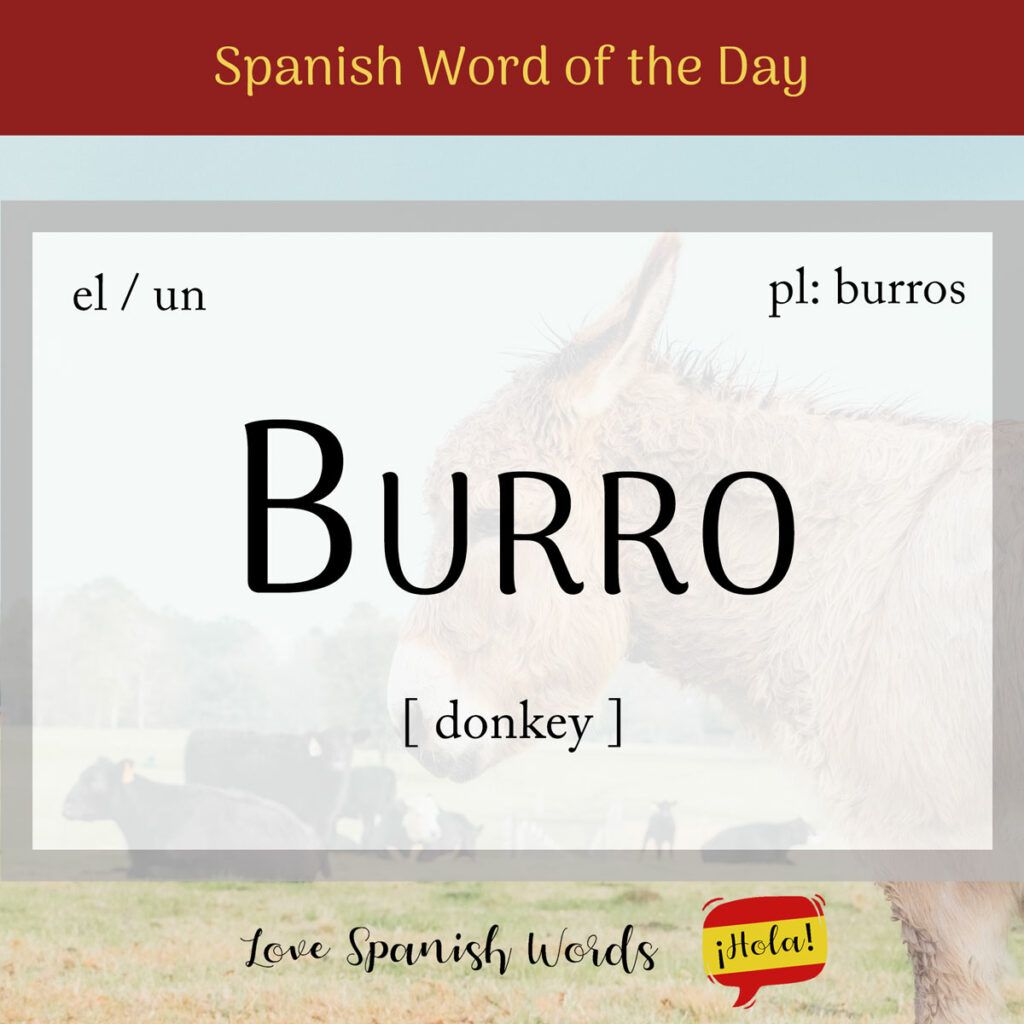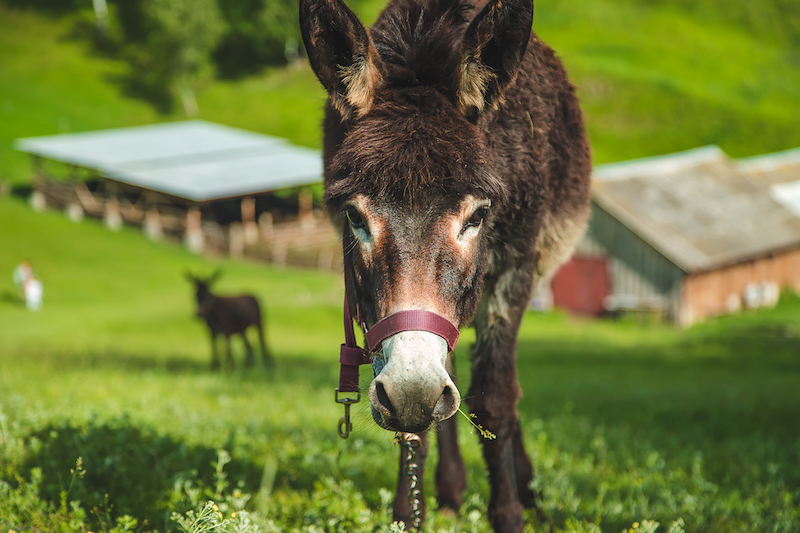One of the hardest working farm animals (animales), along with the horse (el caballo) and mule (el mulo), is the donkey. This animal is known as a burro in Spanish.
Latin American Pronunciation
European Pronunciation

The word burro has a complicated and ancient etymology. It traces back to the Late Latin burricus, referring to a “small, shaggy horse.” This term likely derived from the Greek pyrros, signifying flame-coloured, yellowish-red, originating from pyr meaning fire, ultimately stemming from the Proto-Indo-European root *paewr-.
Interestingly, the word burro exists in English as well, but it refers specifically to a small donkey used as a pack-animal and is mainly used in the United States.
It is a masculine noun that takes the following definite and indefinite articles:
- el burro = the donkey
- los burros = the donkeys
- un burro = a donkey
- unos burros = some donkeys
El burro tira del carro.
The donkey pulls the cart.
Although burro is the generic term for a donkey, you can make it feminine – la burra – to refer to a female donkey, or jenny.
- la burra = the jenny
- las burras = the jennies
- una burra = a jenny
- unas burras = some jennies
A pack donkey is known as a burro de carga, but it is also the figurative term for a hard worker.


Did you know that the Spanish word burro and the Italian burro are false friends? Burro in Italian actually means butter!
Burro and burra can also be used figuratively to refer to a stupid person, much in the same way we use the words ass and jackass in English. Keep in mind that these terms are quite vulgar and should only be used in highly informal situations.
¡Qué burro! ¡No sabe la capital de España!
What a moron! He doesn’t know the capital of Spain!
Burro, also known as los burros (“the donkeys”), is also the name given to a card game played with Spanish playing cards. The objective of the game is to get four cards of the same number. In Mexico, it is also the word for a sawhorse used in carpentry, and an ironing board if you add the words de planchar (“for ironing“) after burro.

Did you know that burrito comes from the word burro, meaning “little donkey”? One story suggests that the name is derived from the bedrolls Mexican miners and travellers would drape over a donkey’s saddle. Another theory is that street vendors sold burritos from baskets attached to their donkeys. Eventually, the name burro was used to refer to the food itself. (Source: Britannica)
Idiomatic expressions featuring ‘burro’
Apear a alguien del burro
Literal translation: to get someone off the donkey
English meaning: to get someone off their high horse
Apearse / bajarse del burro
Literal translation: to get off the donkey
English meaning: to back down / to back out / to get off your high horse
Como burro en primavera
Literal translation: like a donkey in spring
English meaning: like a dog in heat
Como burro sin mecate
Literal translation: like a donkey without a rope
English meaning: out of control
El burro hablando de orejas
Literal translation: the donkey talking about ears
English meaning: the pot calling the kettle black
No ver tres en un burro
Literal translation: to not see three on a donkey
English meaning: to be as blind as a bat
Ponerse burro
Literal translation: to become a donkey
English meaning: to have a fit / to get turned on / to be pigheaded
Más terco que un burro
Literal translation: more stubborn than a donkey
English meaning: stubborn as a mule
La burra no era arisca, los palos la hicieron
Literal translation: the donkey wasn’t skittish; the beatings made her that way
English meaning: once bitten, twice shy

